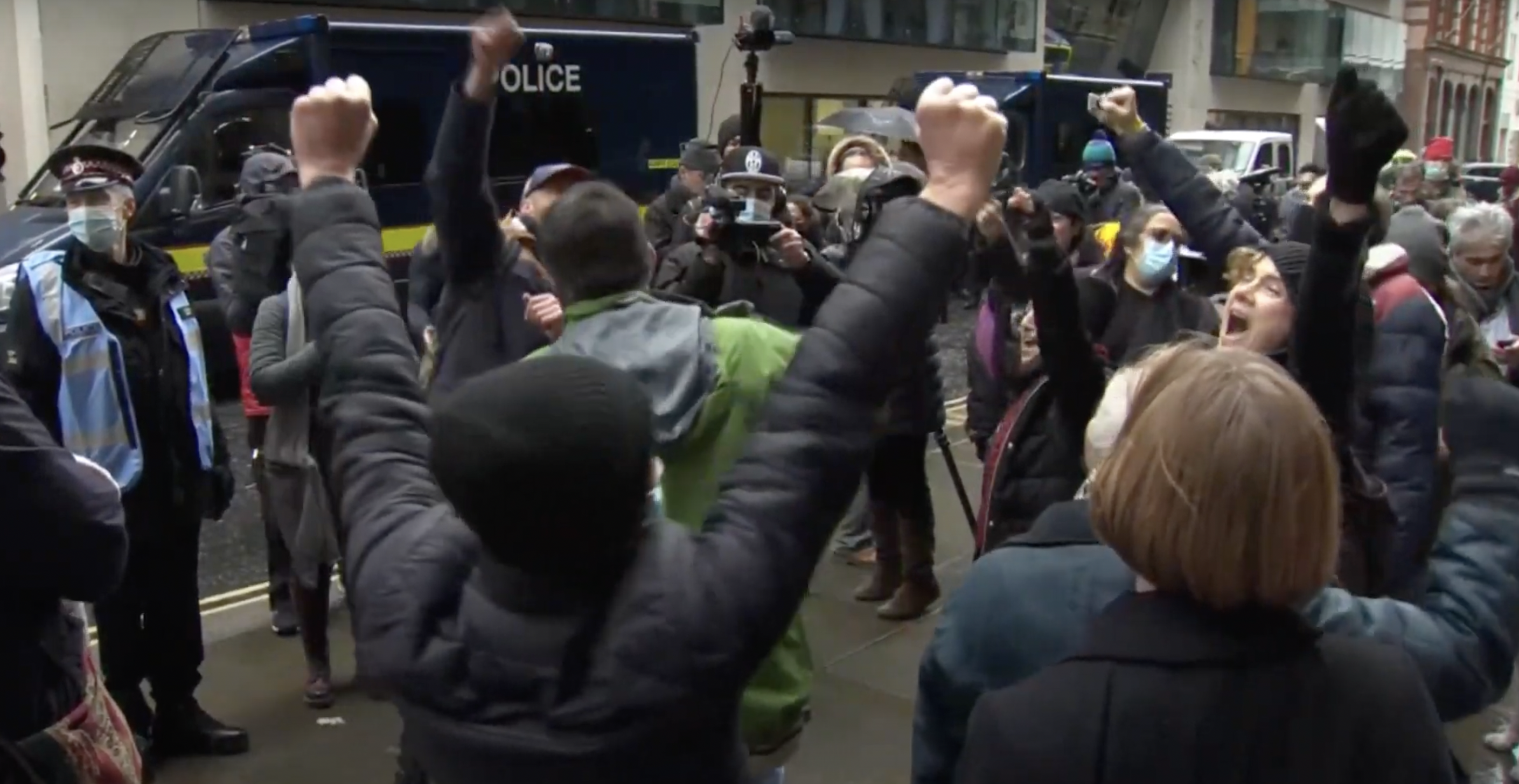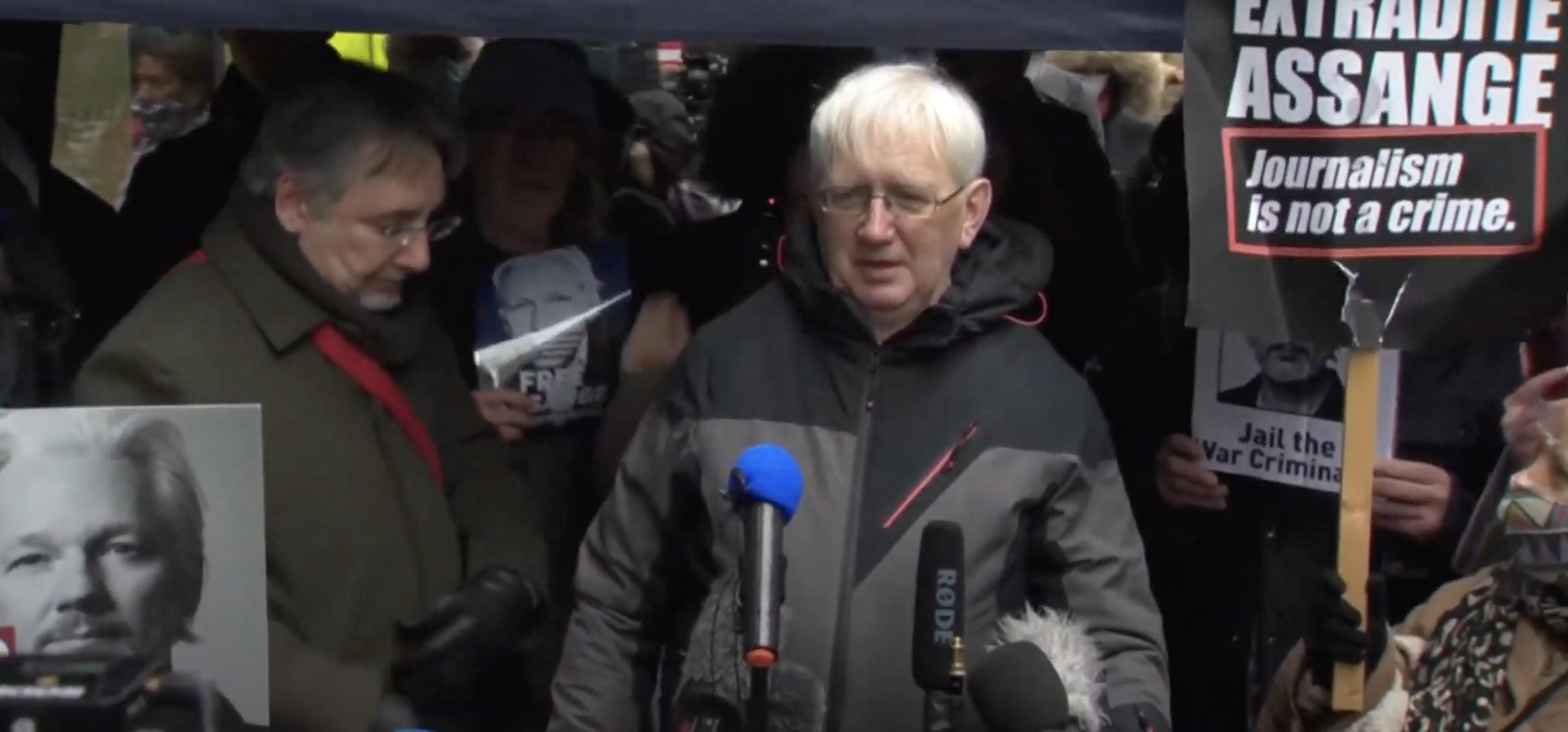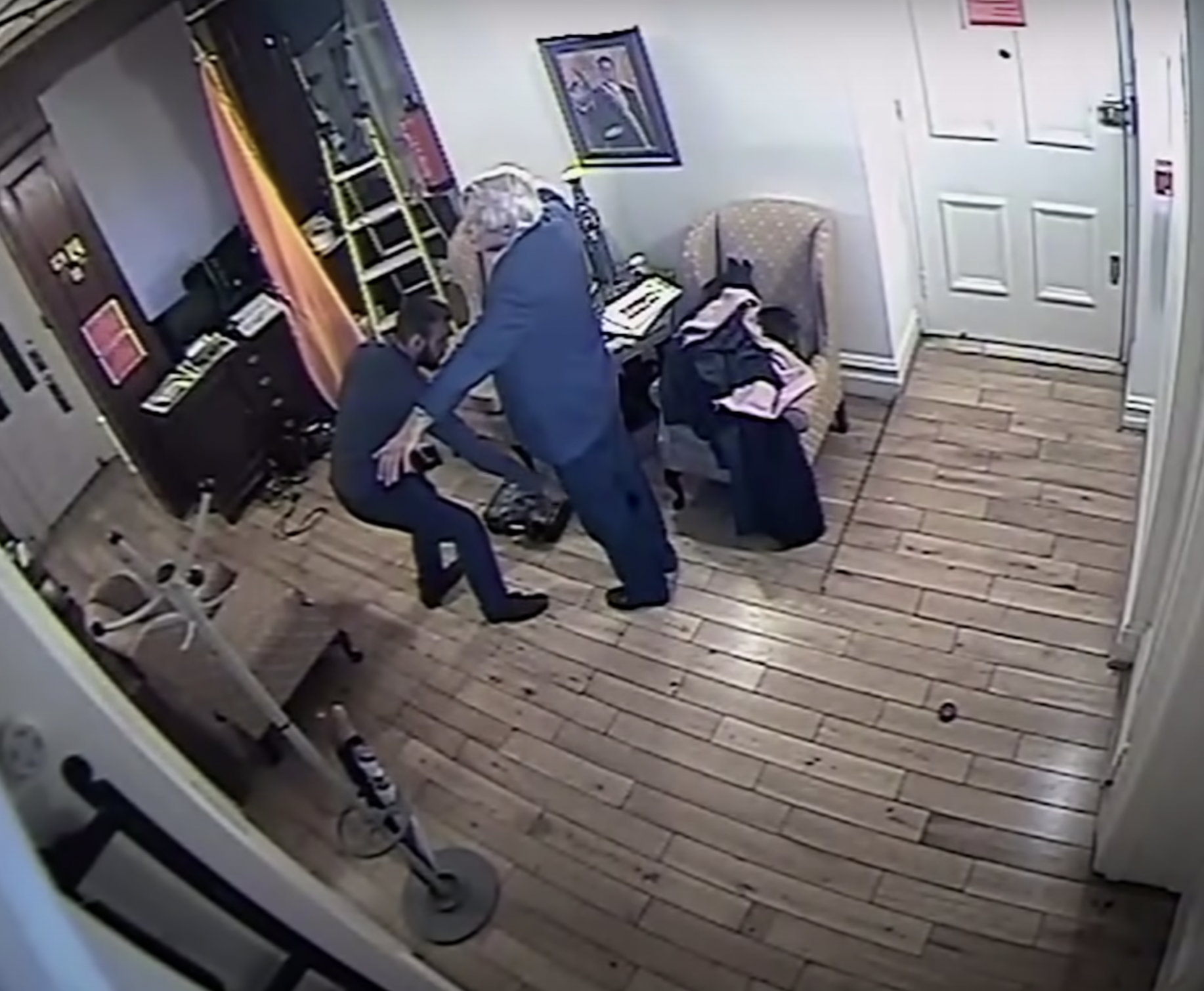Journalist Julian Assange, the founder of WikiLeaks, is set to avoid being extradited from the UK to the US after today’s ruling from a judge.
Assange will not face trial for his role in publishing confidential US Military documents that proved illegal acts by the US government.
Today, Judge Vanessa Baraitser mentioned arguments around s91 Extradition Act 2003, which bars extradition if it is unjust or oppressive by reason of a person’s health.
She said Assange has “recurrent depressive disorder which was severe in December 2019 and is sometimes accompanied by psychotic features.”
The judge said she accepts a psychologist’s opinion that “Mr Assange suffers from autism spectrum disorder, albeit high-functioning, and Asperger’s syndrome.”
She also admitted he remained depressed throughout detention at HMP Belmarsh, and is on a plan for prisoners at risk of suicide or self-harm.
Medical notes document several occasions of Assange telling a prison psychologist and other medical staff that he was suicidal or self-harming thoughts, felt despairing or hopeless, and had plans to end his life, the judge said.
In 2019, a razorblade was found in his cell.
Judge Baraitser said: “Faced with the conditions of near total isolation without the protective factors which limited his risk at HMP Belmarsh, I am satisfied the procedures described by the US will not prevent Mr Assange from finding a way to commit suicide and for this reason I have decided extradition would be oppressive by reason of mental harm and I order his discharge.”
We obtained a copy of the decision for you here.
Judge Baraitser delivered the decision on Assange’s extradition case in a court session that started at 10 am UK time.
At the hearing, Julian Assange sat in a blue suit with crossed legs and wiped his brow after the decision was announced, while his fiancee, Stella Moris, with whom he has two young sons, cried.
Moris was embraced by Kristinn Hrafnsson, the WikiLeaks editor-in-chief, who sat beside to her in court as the judgment was delivered.
Outside, Assange’s supporters cheered.


Assange is not expected to be freed from the high-security Belmarsh Prison immediately as the US government is likely to make an appeal, but he can make a fresh application for bail.
However, this is not a win for free speech or freedom of the press to hold governments accountable.
During the hearing, it first appeared the ruling was going to go the other way, with the judge not actually coming down on the side of free speech and she actively parroted many of the prosecution’s claims.
The judge made it quite clear she believed there are grounds to prosecute Assange for his publications.
Prosecutors allege Assange helped US defense analyst Chelsea Manning breach the Espionage Act and was involved in hacking.
Assange denies ever plotting with Manning to crack a password on US Department of Defense computers and says there is zero evidence that his releases put anyone’s safety at risk.
Assange’s defense for his actions is freedom of expression in the First Amendment and, like any other journalist, was simply exposing illegal acts.
The July 12, 2007, Baghdad airstrikes were a series of air-to-ground attacks conducted by a team of two U.S. AH-64 Apache helicopters in Al-Amin al-Thaniyah during the Iraqi insurgency which followed the Iraq War.
On April 5, 2010, the attacks received worldwide coverage and controversy following the release of 39 minutes of gunsight footage by the Internet whistleblower website WikiLeaks.
The video, which WikiLeaks titled Collateral Murder, showed the crew firing on a group of men and laughing at some of the casualties, all of whom were civilians, including two Reuters journalists. An anonymous US military official at the time confirmed the authenticity of the footage, which provoked global discussion on the legality and morality of the attacks.
Since releasing this, and other materials, Assange has become a target of the US government.
Leading many to believe the judgement was going to go the other way, Judge Vanessa Baraitser, in the ruling, repeated many of the claims prosecutors made, and said Assange’s actions put lives at risk – even though even the US government has previously admitted that no harm was caused.
Judge Baraitser said the defense’s argument that the UK-US extradition treaty meant Assange should not be extradited because he is accused of a “political offense” is not applicable, because rights are governed by the Extradition Act 2003 instead.
Assange’s actions would “not be protected by free speech” if they took place in England and Wales, the judge said, and that his actions would have been offenses under the Official Secrets Act in Britain.
She said it did not give him “the right to sacrifice the safety of individuals knowing nothing of the circumstances or the dangers they face, in the name of free speech.”
Judge Baraitser Said Assange’s role in the Manning disclosures “went beyond the mere encouragement of a journalist” and repeated the prosecution’s allegations of joint work with Manning and that Assange’s speeches at conferences in 2009 and 2013 were an attempt to recruit hackers.
She said his actions “took him outside any role of investigative journalism” and aimed to further Wikileaks’ aims, clearly not agreeing with many of the defense’s arguments.
The judge claimed it is not “unjust or oppressive to extradite Mr Assange because of the passage of time,” despite him being fugitive from British justice since June 2012 and US justice since December 2017.
US prosecutors have charged the 49-year-old on one charge of computer misuse and 17 espionage charges, all of which have a maximum sentence of 175 years.
During the 4-week extradition hearing held last year, Assange’s lawyers argued that the leaking of the documents is protected under the First Amendment free speech rights. The documents he leaked exposed the illegal wrongdoings of the US Military in the Afghanistan and Iraq wars. The defense also argued the extradition was politically motivated.
The prosecution argued that the issues raised by the defense were irrelevant.
“Consistently, the defense asks this court to make findings, or act upon the submission, that the United States of America is guilty of torture, war crimes, murder, breaches of diplomatic and international law and that the United States of America is ’a lawless state’,” the prosecution said at the time.
“These submissions are not only non-justiciable in these proceedings but should never have been made.”
The court heard that a security contractor was allegedly recruited by “American friends” to spy on Assange’s meetings at the Ecuadorian embassy and that by December of 2017, the US contacts were allegedly said to be “desperate,” and even went as far as discussing a potential kidnap or poison plot to end the stalemate.

In its closing argument, the defense team accused the US government of “extraordinary, unprecedented, and politicized” prosecution that led to “a flagrant denial of his right to freedom of expression and poses a fundamental threat to the freedom of the press throughout the world.”
Assange has been at the Belmarsh Prison in London since April 2019. Before that, he was at the Ecuadorian Embassy for seven years, where he sought asylum after jumping bail in 2012. While at the Ecuadorian Embassy, he was diagnosed with an autism spectrum disorder.






















